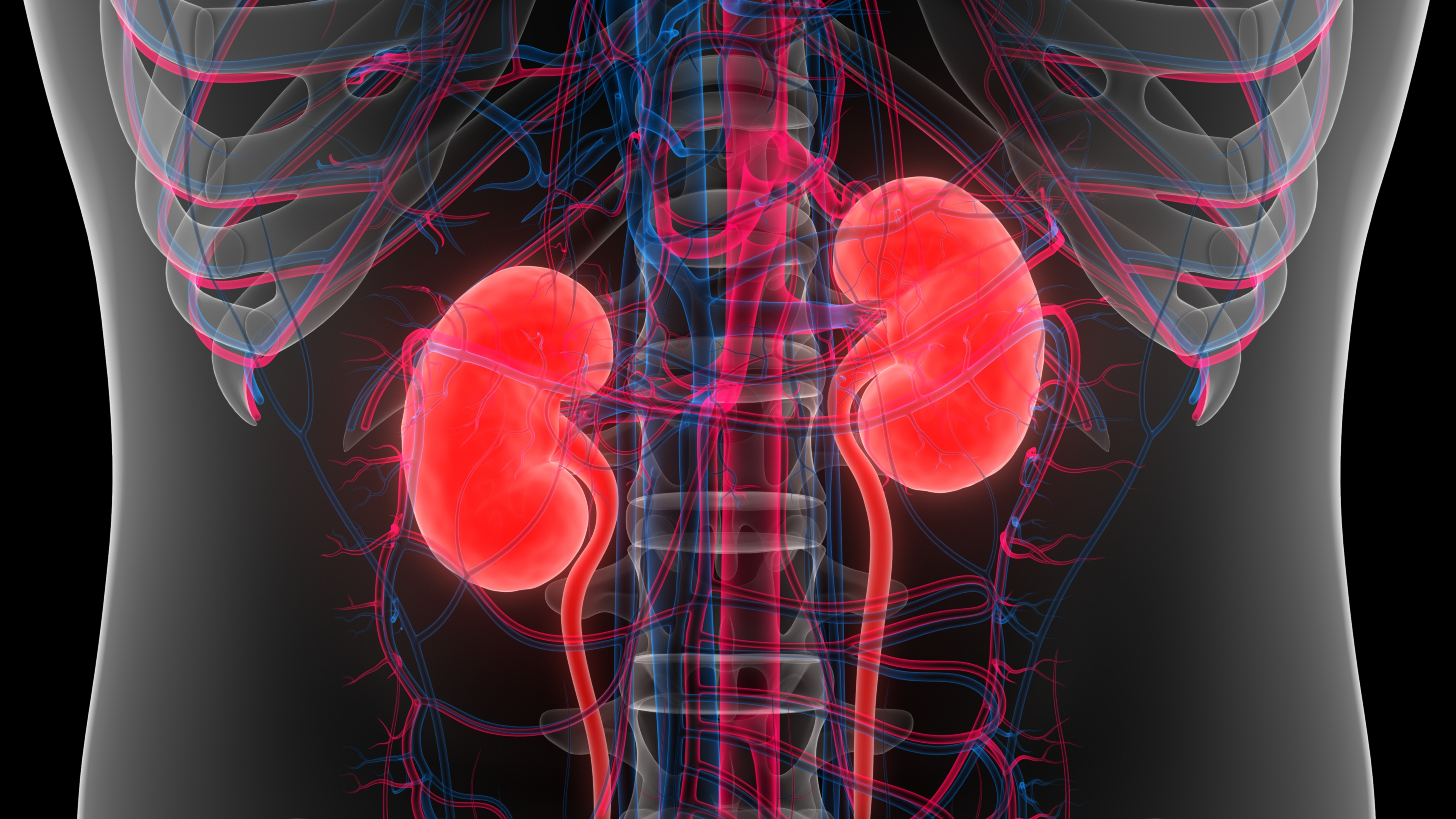ATLANTA – Following a three-year, multicenter clinical trial, researchers at Emory University and Emory Transplant Center have found that it is safe to transplant a kidney from a deceased donor with human immunodeficiency virus (HIV) into a recipient living with HIV in need of a new kidney. Additionally, the researchers have learned such HIV-to-HIV kidney transplants are just as effective as transplanting a donor kidney without HIV into a recipient living with HIV.
The findings of this observational study, funded by the National Institutes of Health (NIH) and led by researchers at Johns Hopkins School of Medicine, were published in the New England Journal of Medicine on Oct. 16.
During the Hope in Action Phase II clinical trial from 2018-21, 198 recipients living with HIV received a kidney transplant from a deceased donor at one of 26 transplant centers in the U.S. Of those kidney transplants, 99 received a kidney from a donor with HIV and 99 received a kidney from a donor without HIV.
The researchers found that recipients who received kidneys from donors with HIV had similar outcomes and did as well as recipients who received kidneys from donors without HIV.
“Numerous studies have shown that people living with HIV disproportionately face many barriers in receiving transplants,” says Rachel Friedman-Moraco, MD, associate professor of medicine, Division of Infectious Diseases, Emory University School of Medicine and site principal investigator of the Hope in Action clinical trial at Emory.
“This research shows that we can safely expand the donor pool and improve equity for those living with HIV who need kidney transplants. And we believe this research can help reduce the stigma surrounding HIV. We thank the donors and donor families who graciously allowed donation of these life-saving organs, as well as our recipients who were willing to participate in the study,” says Friedman-Moraco.
The study found that kidneys from donors with HIV appeared to be“non-inferior” or no worse than donors without HIV.
Additionally, overall survival rates between the two groups were similar at one year after the kidney transplant (94% for donor kidneys with HIV vs. 95% for donor kidneys without HIV) and three years after transplant (85% for donor kidneys with HIV vs. 87% for donor kidneys without HIV). Organ rejection at three years was also comparable (21% for donor kidneys with HIV vs. 24% for donor kidneys without HIV). The incidence of serious adverse events, infections or surgical complications was also similar between the two groups.
Currently, more than 90,000 people are waiting on a kidney transplant, according to the Organ Procurement and Transplantation Network. Experts say that’s why research like the Hope in Action clinical trial is so important.
In 2013, because of the shortage of organ donors in the country, the U.S. Congress passed the HIV Organ Policy Equity (HOPE) Act calling for research to learn if kidney and liver donors with HIV could safely donate to recipients who were living with HIV.
Emory Transplant Center joined the Hope in Action pilot trial, and in 2017, Emory transplant surgeons performed the first kidney transplant from a deceased donor with HIV to a recipient living with HIV in the state of Georgia.
“Based on the research at Emory through Hope in Action and at the 25 other U.S. transplant centers, we expect the U.S. Department of Health and Human Services to amend current regulations and remove the research requirements for kidney and liver transplants from donors with HIV to recipients living with HIV, making these transplants standard of care going forward,” says Stephanie Pouch, MD, director of transplant infectious diseases at Emory Healthcare and associate professor of medicine, Division of Infectious Disease at Emory.
“This change in policy would be a testament to the incredible work of our research teams and generosity of donors and donor families to push boundaries to save lives, while helping improve equity and access to transplantation for those living with HIV,” says Pouch.
These new policy updates likely would not take effect for 15 months from the publication of the policy’s final rule. Those living with HIV can continue to enroll in the continuation phase of the Hope in Action trial that is occurring at multiple centers.
“It’s also important to note that people living with HIV and dealing with organ failure of any kind can receive a transplant from a donor without HIV outside of research studies, and should be referred for organ transplant evaluation,” says Friedman-Moraco.
“The findings from the Hope in Action study are an example of how quality clinical research can improve care and access to patients in need of a transplant,” says Thomas Pearson, MD, DPhil, kidney transplant surgeon and executive director of the Emory Transplant Center. “With a huge discrepancy between supply and demand of donor kidneys in the U.S., these findings will help increase donor organs in these specific populations and for all patients with end-stage kidney disease.” Pearson also serves as the Livingston Professor of Surgery at Emory School of Medicine.
As for donating other organs such as hearts and lungs from donors with HIV to recipients with HIV, experts say more research is needed in those areas.
Funding for this study was provided by the following NIH grants: R01AI120938, R01DK131926, U01AI134591, U01AI138897, U01AI177211 and R01DK101677.

